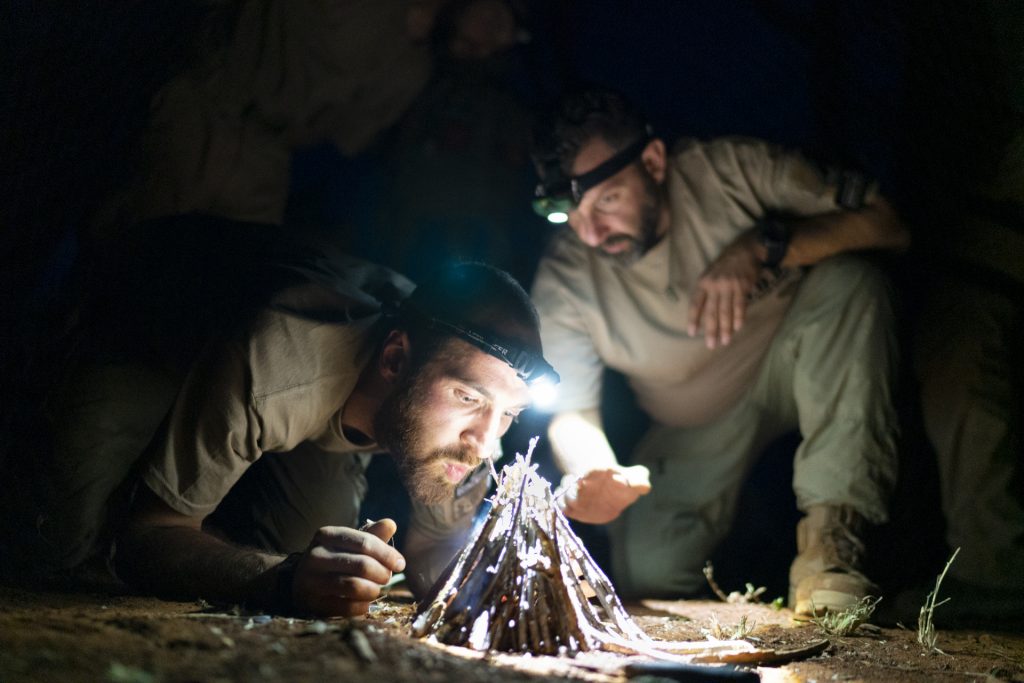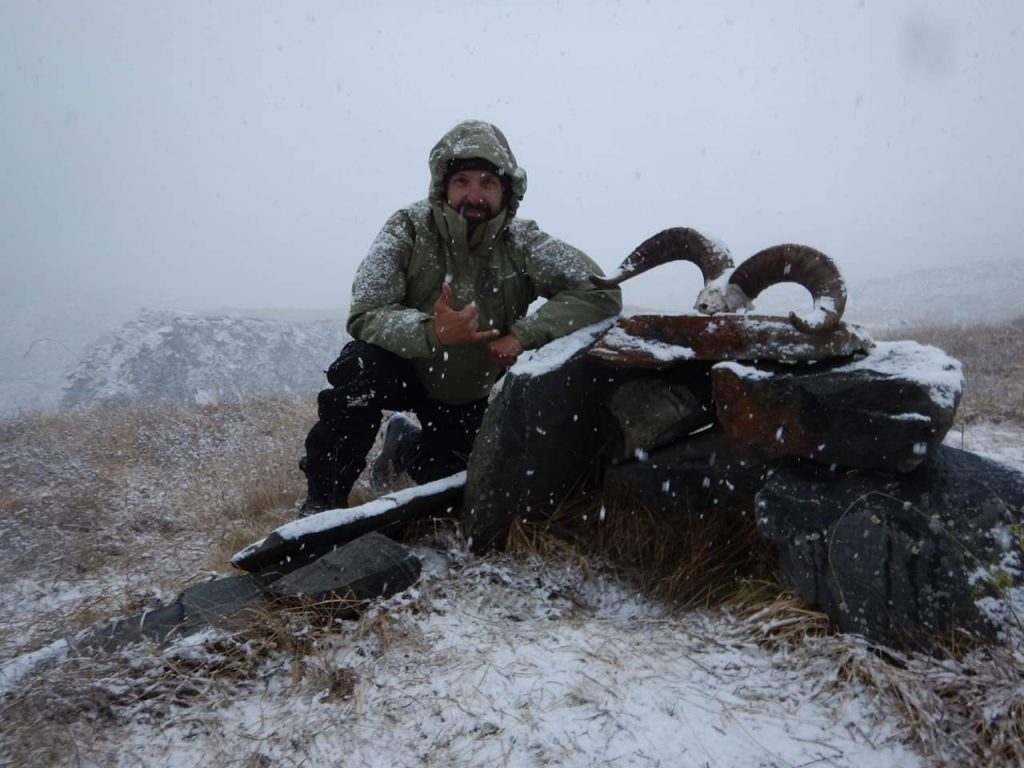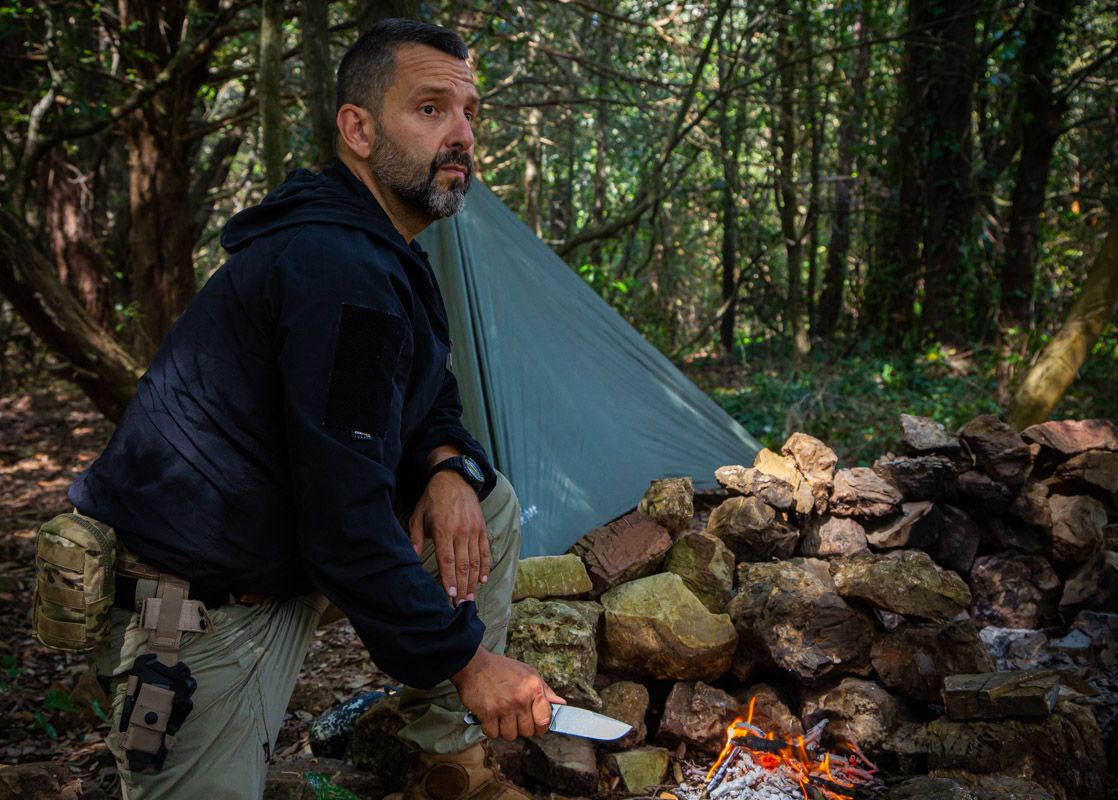It was 1982 when the first movie of the Rambo saga was released into the cinemas. In the film, the war veteran manages to escape the police by hiding in the woods, surviving for days thanks to the use of military techniques that enabled him to cater for the food supply, construction of shelters and medical care.
The recent years TV storytelling has represented survivalists as modern John Rambos capable of facing every environment and every situation in solitary with the use of makeshift tools: partly it is true, but this vision limits the figure of the survivalist.
The survivalist is acquainted with the techniques necessary to deal with unforeseen situations, such as a natural disaster, has great skills of self-control and does not give up collective activities, knowing that survival is mainly based on cooperation.
The survivalist is also flanked also by the figure of the prepper (comes from: to prepare): it is a movement born in the 1900s in the United Kingdom and the USA in response to the fear of a possible nuclear catastrophe hovering during the Cold War period. Averted an hypothetical Soviet attack, modern preppers are prepared for any unforeseen event, ranging from a flood to the collapse of society due to the lack of availability of fundamental raw materials, mainly by studying plans to cater for the supply of water and food, by equipping a safe haven, learning survival techniques.
The recent Coronavirus pandemic and its consequences, such as difficulities in finding availability of useful tools such as masks or, for a very short period, the lack of supplies in supermarkets, down to the vigorous protests in the squares all around the world, have highlighted the figures of survivalists and preppers, the only ones really ready to face this emergency.
We interviewed Daniele Dal Canto, master advance instructor F.I.S.S. (Italian Federation of Sports and Experimental Survival), to better understand the world of survival and to clarify the figures of the survivalist and the prepper.

Daniele, how would you define Survival? Which are the main differences with Prepping?
“Survival can be defined as a multidisciplinary activity aimed at making people’s lives continue not only in an emergency or immediate danger contexts, but also in normal everyday life. The differences with Prepping are very few, both disciplines start from a state of ‘concern’, that is, to take care of it (deal with it first) which specifically leads to gather information and training with a constant training in the main survival techniques, planning preventive intervention strategies and finally choosing and preparing the most suitable equipment.
Which was your first approach to this world?
“More than an approach to the Survival and Prepper world, I would say that I was born with this ‘attention’. As a boy I began to get interested after watching the 1980 dramatic movie The Day After at the cinema, an American movie about what would happen to the planet after a nuclear war. At the time I was unaware both of the existence of Preppers neither of the fact that survival techniques and their methodologies could be studied. After watching that movie I began to inform myself and try to acquire knowledge and skills’ from the greats ‘on how to behave in the event of a blackout, earthquake, fire or flood, and from there I began my training.
Would you tell us about a situation in which you used the acquired techniques?
“There are many situations where I tapped into my Survivalist baggage to solve problems or overcome unexpected events. The first ever that comes to mind is when, during the ascent of a stream, two friends of mine and I were isolated by a flood one side of the stream, blocked and apparently with no escape routes. After some tens of minutes, since the flood did not decrease, we decided to cut down a long tree on our side, in order to make it fall on the other side as a bridge. We succeeded and after several hours of walking in the dense vegetation we returned to our vehicles. We were sixteen years old”.
Which is the must have tool a survivalist shoud never be without? Why?
As my grandfather often used to tell me “a man is as good as his knife. ” So I say without any shadow of a doubt, the knife, if I have to choose a tool, but it is also true that this tool by itself is ineffective. A knife, like a mountain equipment, is useless without knowledge, awareness and skills. In particular with regard to the knife, it is a ‘disobedient’ tool that needs care and a lot of attention especially in using it , otherwise it will continue to do its job even when we are distracted and will remind us, with a nice cut, that we were wrong. The reason for this choice is obvious: it is the redundant tool par excellence, which finds its use in all outdoor jobs, from preparing food to building tools or for the preparation of fire triggers, also for personal defense or for making hunting tools “.

You teach this discipline, you are a Master Advance Instuctor F.I.S.S. How are your courses held?
“My Survival courses are generally developed over a weekend: Friday, Saturday and Sunday. During the course, frontal lessons alternate with theoretical / practical teaching on how to organize intervention strategies, preparation of the equipment and of the survival kit and a lot practice in an individual or sub-group environment. Sunday is concluded with a movement exercise and implementation of the strategies created during the course, mainly linked to land navigation in order to reach an escape route.Every year, during the month of December, we organize a weekend called ‘Contest’ open to all the students of the previous year, where a maxi Survival simulation is organized for the occasion “.
Can Anyone Be a Survivalist? Do you need a particular attitude?
“Everyone can approach Survival or Prepping, which is to prepare to face, of course within certain limits, unexpected events, risks or calamities that life often puts before us. A determining factor in developing this mentality is surely to become as autonomous as possible and to study in order to acquire greater skills not only in the field of outdoor life, but also in know how. A Survivalist, if necessary, must know how to improvise himself carpenter, bricklayer, electrician, mechanic and, if necessary, also dentist or nurse … Obviously for personal purpose and in emergency situations where the intervention of specialists is not possible. This is why I define survival and prepping as similar activities with the same purpose “.
A tip for those who want to approach the world of Survival for the first time.
“For those wishing to undertake this path, which can be undertaken on several levels, either as a simple curiosity to satisfy or as a real ‘modus vivendi’, my advice is to do so by taking as a guide professionals in the sector, instructors and trainers professionally certified and competent. It is better to forget about hobbyists, amateurs and those who do it as a second or third job “.



